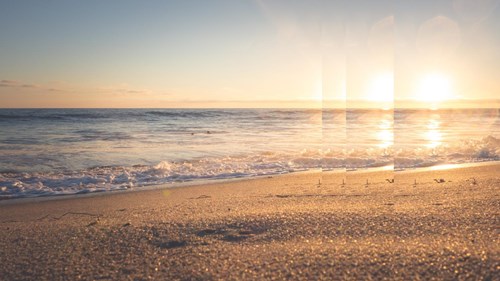LIV Golf v. the PGA
What is it about?
The golf world is in turmoil. The main reason for this is the LIV Golf Tour, which was launched at the beginning of 2022 and is sponsored by the Saudi Arabian sovereign wealth fund. It has stepped up to compete with the venerable PGA Tour. Since then, LIV Golf has been able to persuade a number of well-known players such as Phil Mickelson, Bryson DeChambeau or the German golf pro Martin Kaymer to join the alternative tour with generous financial incentives. Most recently, it became public that Tiger Woods turned down an offer of up to EUR 800 million from LIV Golf and remained loyal to the PGA. Those players who, unlike Tiger Woods, accepted the offers of LIV Golf and participated in tournaments and other events of LIV Golf were threatened by the PGA with lifetime bans from PGA tournaments. Currently, participants of the LIV Golf Tour are also barred from participating in PGA tournaments.
As a reaction to this, eleven LIV golf professionals around Phil Mickelson have now filed a lawsuit against the PGA Tour before a court in California. At the same time, three of the plaintiffs also want to obtain interim legal protection to participate in the PGA Tour's FedEx Cup playoffs, which are important for world ranking points. In both cases, the plaintiffs argue that the PGA's actions against the LIV golf professionals violate antitrust law. Accordingly, the PGA is said to have exploited its (hitherto) monopoly power by imposing participation restrictions, thereby denying the players the opportunity to sell their services (in the form of the high-profile game of golf) to others. At the same time, this would be an attempt to squeeze competing providers of professional golf tournaments out of the market from the outset.
The dispute in the golf world joins a number of other disputes in the sports world over the establishment of alternative leagues and event formats in competition with the established federations and organisers. The most prominent example of this is probably the so-called Super League in football. Last year (2021), an association of twelve top European clubs (including Real Madrid and Manchester United) presented a concept for the Super League, which is intended to compete with the Champions League but also with the national leagues. Originally, only invited teams were to be allowed to play in this Super League in addition to the twelve founding clubs. Due to negative feedback from fans and politicians, some clubs have since withdrawn from the project.
Even though the Super League has not yet been started, the organisers of the planned Super League are arguing with UEFA and FIFA in a Madrid court about the legality of UEFA's and FIFA's reactions to the Super League plans. Similar to the PGA's response to the LIV professional golfers, UEFA and FIFA have also threatened those clubs that also wanted to participate in the Super League with participation bans for UEFA and FIFA events. In the meantime, the court in Madrid has also referred the matter to the European Court of Justice for a preliminary ruling and asked for clarification on the question of whether UEFA and FIFA have exploited their dominant position and thus violated the prohibition of abuse of market power (Article 102 TFEU).
What role does antitrust law play?
Besides golf and football, alternative sports federations and the organisation of competitions outside the organisation of existing federation structures have also been observed in other sports. In basketball, for example, there are several European league competitions organised by different organisations (FIBA Europe and ULEB). In boxing, too, there are different federations (WBA, WBC, IBF and WBO, among others). Another example comes from speed skating. The International Skating Union (ISU) has received competition from a private, commercial organiser who organises the well-funded "Icederby".
The reaction of the PGA Tour as well as UEFA/FIFA to the plans regarding the LIV Golf Tour and the Super League are again comparable to that of the ISU towards potential competition. It threatened participants of the Icederbys on the basis of the ISU statutes with, among other things, a life-long exclusion from ISU competitions. The European Commission then took up the complaint of two speed skaters concerned and found a violation of the European ban on cartels. According to the European Commission, the violation of the ban on cartels consists in the regulations of the ISU Statutes, which restrict the possibilities of athletes to participate in speed skating competitions organised by third parties. In doing so, the ISU forecloses the market for the organisation and marketing of international speed skating competitions. The General Court of the European Union has since upheld this decision of the European Commission (T-93/18). The appeal proceedings before the ECJ are currently still pending (C-124/21 P).
In addition to a violation of the ban on cartels, a violation of the ban on abuse of market power by the established sports associations can also be considered in such constellations. This is based on the assumption that the established sports associations - such as the PGA Tour or UEFA - could drive the new competition out of the market by means that do not improve their own product - in this case the PGA tour or the Champions League - but merely hinder competitors such as the Super League in their activities.
It is open whether in the case of the Super League the clubs involved could also have violated cartel law. In this context, a violation of the ban on cartels cannot be ruled out. Above all, the exclusive arrangement of the Super League in favour of the top clubs and the accompanying coordination between these clubs could be seen as a restriction of competition (whereby it would have to be examined whether such a restriction is permissible).
In all these questions and the legal assessment, the special nature of sport and the autonomy of sports associations is also relevant. This is because sport is often not directly comparable with other economic sectors. The reason for this is, for example, that in football, the clubs each depend on other high-performing clubs to offer an interesting competition that entertains the audiences.
Outlook
Recent developments in golf, football and other sports suggest that antitrust law will play an increasingly prominent role in the fight for attention, prestige as well as prize and advertising money. It cannot be ruled out that, in addition to the legal disputes between the competing associations and organisers, further antitrust proceedings by competent authorities will sooner or later be added. This would be to be expected above all if the majority of courts side with the emerging sports associations and classify the defence measures of the established organisations as problematic under antitrust law. Competition authorities such as the European Commission or national cartel authorities (e.g. the Federal Cartel Office) could then take a closer look at the sports associations and their defence measures.
Depending on the further course of events, official fines and, above all, claims for damages by the disadvantaged actors are conceivable.
Well
informed
Subscribe to our newsletter now to stay up to date on the latest developments.
Subscribe now








